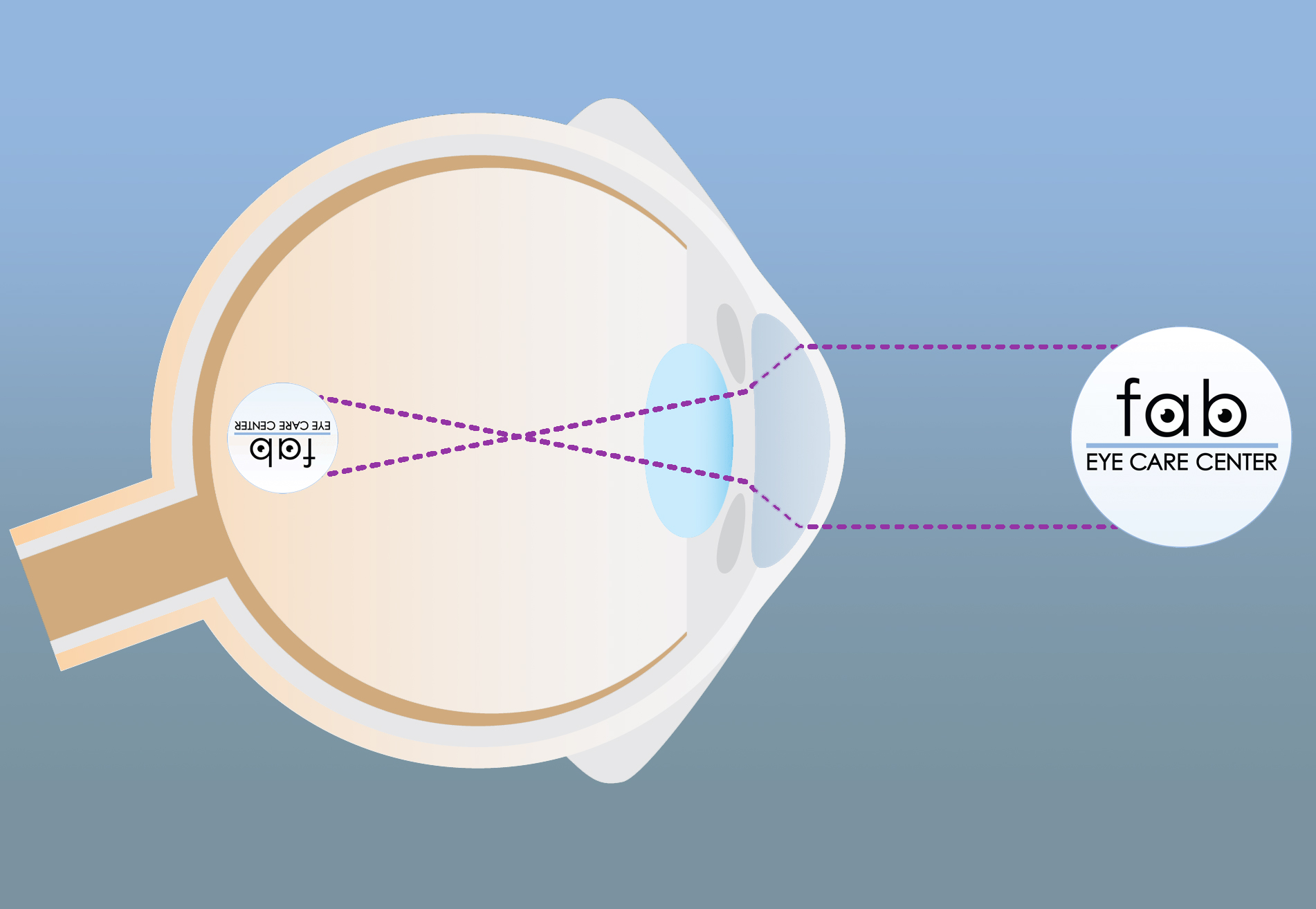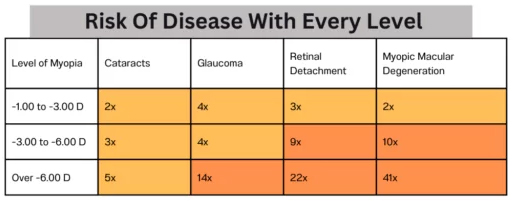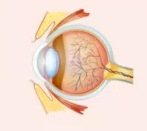
Slowing the Progression of Myopia (near-sightedness)
Myopia, or near-sightedness, is more than just about getting your new glasses—it’s a chronic, progressive disease that can pose long-term risks to ocular health. With the global prevalence of myopia rising significantly, especially among children, early and proactive intervention has never been more critical.
At Fab Eye Care Center, we offer clinically proven myopia control treatments, including the fitting of FDA-approved MiSight® 1 day soft contact lenses, to help slow the progression of myopia and protect long-term visual health.
Understanding the Risks of Progressive Myopia
Children with progressing myopia are at a significantly higher risk of developing serious eye conditions later in life, such as:
High Myopes Have Increased Risk of disease such as:
- 7x more often get Retinal detachment
- 40x more often get Myopic maculopathy
- 4x more often get Glaucoma
- 3x more often get Cataracts earlier in life
These risks increase as myopia advances, making early diagnosis and evidence-based management essential.
MiSight® 1 Day: FDA-Approved Myopia Control
Fab Eye Care Center is proud to be certified to fit MiSight® 1 day contact lenses—the first and only FDA-approved soft contact lens proven to slow the progression of myopia in children aged 8 to 12 at the initiation of treatment. Clinical studies have shown that MiSight® lenses can reduce myopia progression by up to 59% over a three-year period, compared to single-vision lenses.
Comprehensive Myopia Management at Fab Eye Care
In addition to MiSight® lenses, Fab Eye Care Center offers a comprehensive approach to myopia control, which may include:
- Low-dose atropine therapy
- Multifocal glasses
- Lifestyle counseling to support healthy visual habits
- Regular axial length monitoring and personalized treatment plans
Our team uses advanced diagnostic tools to carefully monitor and manage each child’s visual development, ensuring the best possible outcomes.
The Myopia Management Options at Fab Eye Care Center
Myopia Progression Risk

Understanding Myopia

Myopia, characterized by the ability to see close objects clearly while distance objects appear blurry, typically develops in childhood and progresses until early adulthood. Higher levels of myopia are associated with a higher risk for retinal detachment, glaucoma and macular degeneration. It is best to provide myopia management options as early as possible, as these are likely to slow or halt myopic progression during some growth periods.
Treatment Options
★ Daily Wear Contact Lenses
- Soft contact lenses worn during the day.
- Designed to slow myopia progression.
- Convenient for active children who play sports.
★ Nightly Wear Orthokeratology Lenses
- Rigid gas-permeable contact lenses worn overnight.
- Temoorarily reshape the cornea to reduce myopia.
- Clear vision during the day without the need for glasses or contact lenes.
★ Low Dose Atropine Drops
- Eye drops applied daily.
- Shown to effectively slow myopia progression in children.
- Generally well-tolerated with minimal side effects.
